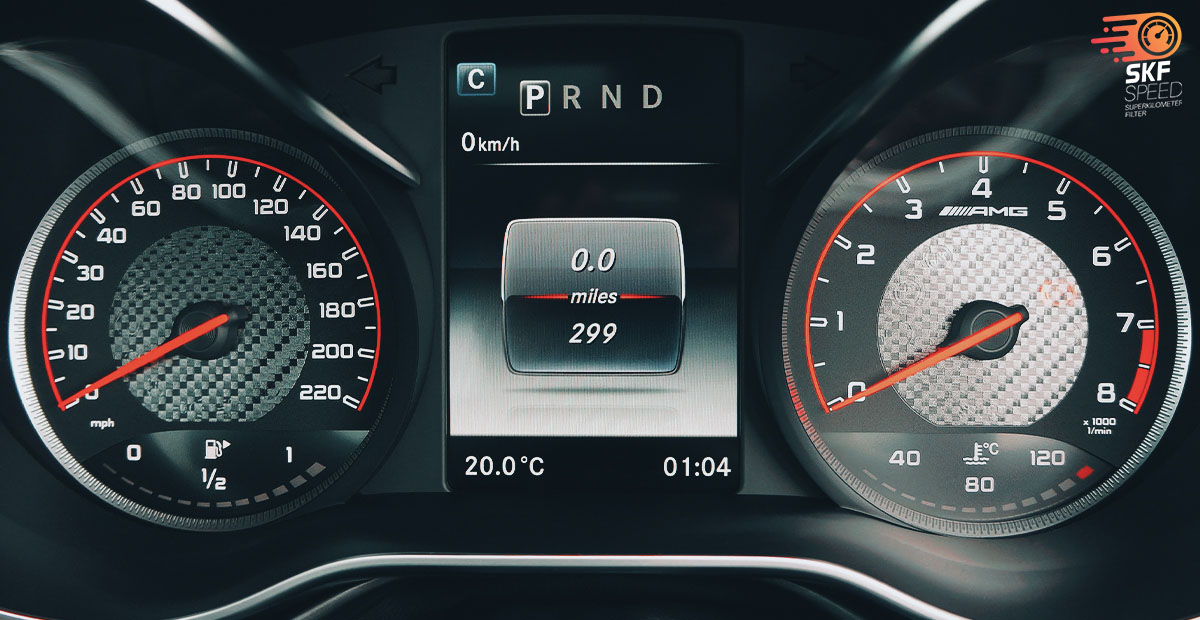
Are you in need of a high mileage oil change? Then you have come to the right place. Changing oil might seem like a simple activity, yet it still requires certain knowledge. Even if you use professional services for this task, you still need to know what high-mileage oil is, which one is better for your car, and how often you should change the motor oil.
This information will help you understand how important it is to change the oil regularly on high-mileage cars. By following high mileage oil limits and schedules, you’ll be able to improve the performance of your engine significantly.
As the mileage of your vehicle increases, the components of the car start deteriorating. Some of them break down quickly, while others need more time to show the signs of wear and tear. Even though engines are made to last, they, too, wear out eventually. That’s exactly why people pay so much attention to the mileage.
The more miles you add to the odometer, the harder the motor has to work to deliver former performance. The rubber components start breaking down, failing to provide secure sealing. The friction also increases, damaging the moving parts of the engine. This can result in oil leakage, excessive oil usage, oil burning, etc. According to the National Highway Traffic Safety Administration (NHTSA), vehicles that are driven under aggressive conditions, high speeds, or heavy usage may consume engine oil at a rate of 1 quart every 1,000 miles. For such circumstances, this is considered to be an average rate.
Even though mileage isn’t the only factor that determines the condition of the car, it still affects the performance of various parts, including the engine. To make sure the motor lasts as long as possible, it’s a good idea to switch to high-mileage oil when the time comes.
High mileage oil change is specifically crucial for vehicles that have more than 75,000 miles on the odometer. It has additives that prevent the parts of the engine from deteriorating. Since those additives aren’t necessary for younger vehicles, ordinary oils might or might not include them, among other ingredients.
Choosing the right oil is essential to avoid damaging the engine. If so, you’ll have to replace the entire engine and face serious expenses. Even though replacing the engine won’t affect mileage, it won’t increase the value of the car. In other words, it will turn into an unnecessary headache.
As a rule, high-mileage oils contain ingredients such as detergents, conditioners, and other additives. Detergents are cleaning agents that remove sludge from the parts of the engine. By cleaning the metal surfaces, they protect the motor and extend its lifespan. Conditioners maintain the flexibility of the rubber gaskets, preventing the engine from leaking. Finally, the additives lubricate parts and reduce friction between moving components of the motor.
Similar to regular oils, high-mileage oils also differ significantly from one another. For example, synthetic oil mileage limits won’t be the same as organic oil mileage limits. This means that you’ll have to change these oils at different intervals.
Therefore, it’s important to know what types of high-mileage oils are available on the market.
High mileage oils are available in various forms and shapes. It can be quite hard to distinguish between different types since manufacturers usually use marketing strategies heavily. But we can discuss the main types of high mileage oils to make it easier for you to select a proper one.
Manufacturers create synthetic oil from synthetic ingredients. They manipulate the components to increase the benefits of the oil and reduce its drawbacks. Therefore, such oil is usually way more expensive than other available types.
Full synthetic oil is great for vehicles that are frequently exposed to extreme weather conditions. They flow more easily in a cold climate, making sure that the engine operates as it should. They also offer a higher level of protection and boost the performance of the motor significantly.
There’s a myth regarding the full synthetic oil and old cars. People often believe that this type of oil isn’t compatible with older engines and causes leakage. Even though high mileage full synthetic oil isn’t the best match for classic cars, it can work normally with the majority of high-mileage vehicles.
A synthetic blend is a mixture of organic i.e. natural oils and synthetic ingredients. Instead of creating a fully synthetic substance, scientists add synthetic components to the mineral oils. This way, they can easily increase the performance of the oil without increasing the price too much. It goes without saying that you can easily use this type of oil with a high-mileage vehicle.
For synthetic high mileage oil change every 7,500 – 10,000 miles. But if the manufacturer of your car recommends a different interval, you should, of course, follow their instructions.
Conventional oil is the most widespread oil on the market. It doesn’t have anything extraordinary. However, it knows how to get the job done. Choose the one that has the label “high mileage,” and you should be fine. But before you do that, make sure your vehicle takes conventional oil.
Synthetic oils usually have extended mileage limits compared to conventional oils. Vehicle manufacturers usually recommend synthetic high mileage oil change between 7,500 to 15,000 miles. It’s not uncommon to see synthetic oil last anywhere from 10,000 to 16,000 miles. Since scientists purposefully enhance the lifespan of these oils, they tend to last longer.
With that being said, it’s impossible to say exactly what the synthetic oil mileage limit is. However, nowadays, we can surely say that changing oil in a car every 3,000 miles is a myth. Modern automobiles can cover more than 6,000 without need of changing oil. You should always read the car’s instruction manual carefully and follow the guidelines. By reading the instructions, you’ll also figure out which type of oil suits the characteristics of your motor the most.
Make sure to change oil whenever needed, as it can increase the fuel efficiency of the vehicle significantly.
For full high mileage oil change is quite important, which is why the majority of top auto oil manufacturers sell full synthetic oils for high mileage vehicles. The cost of oil varies quite a bit among them, and so does the quality. Below, you’ll find the brands that create high-mileage oil.
Valvoline creates its MaxLife specifically for vehicles that have higher mileage. It promises to improve the performance of the older engine, lubricate it properly, and increase the lifespan of the motor. It’s probably one of the most famous oils in this category.
You can buy MaxLife in various viscosities depending on what your car needs.
Mobil 1 offers a wider range when it comes to high-mileage oils. They tailor their oils to high mileage and super high mileage. The higher the number on the odometer, the more additives their synthetic and full synthetic blends will have.
Unfortunately, we don’t have access to the exact formulations, making it hard to explore the differences between these oils. All we have left is to trust the brand and purchase their oil according to our vehicles.
Shell Helix is yet another brand that creates oils for high-mileage cars. For oil changes, mileage is quite important, which is why they indicate what mileage is compatible with their oils. By being transparent about viscosities and mileage, they make it easy for us to select the proper oil for our beloved vehicles.
Lastly, Pennzoil also creates oils for high mileage cars. They promise to deliver great performance even in extreme climates, protect the engine from water and sludge, and prevent leakage. They offer an oil change coupon to make the switch even cheaper.
Now that you know everything about high-mileage oil change, we can look at practical tips that will help you out even more:
To check the performance of the engine easily and quickly, you can use the mileage blocker. It’s an ethical tool that manufacturers designed specifically for testing purposes. You can plug it into the system of the vehicle without cutting or soldering cables. After installation, you can test the performance of the engine anytime you want. Just avoid using this module on public roads.
It’s important to choose the correct mileage blocker and purchase it from a reliable source. That’s the only way to buy an effective device that will last for a long time. If you need additional information our support team will give you proper service.
High mileage oil change in cars improves the overall performance of the engine. Oil changes provide better protection and increase the lifespan of the motor. Therefore, making a switch is worth it if your car has more than 75,000 miles on the clock.
Remember that switching to high-mileage oil isn’t enough if you ignore the maintenance schedule. It won’t revitalize a worn-out engine – it will simply help it perform better. Therefore, taking good care of your car will always count as an advantage. Good luck!





Here you will find all the details about our company
Here you will find shipping and return related information
Here you will find information on all technical questions
Here you will find helpful information about installation